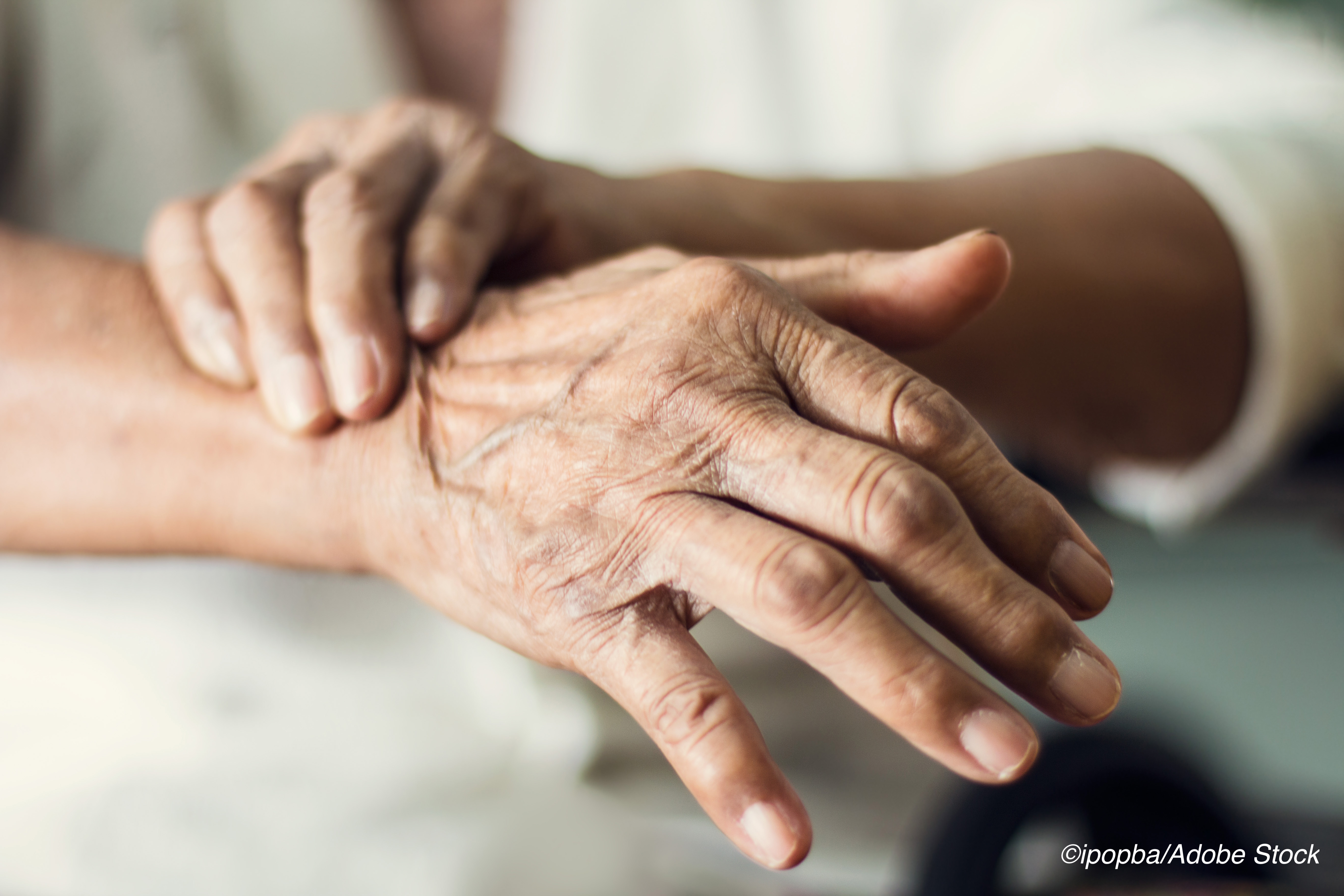SARS-CoV-2 RNA viral infection and neurodegeneration in Parkinson’s disease (PD) share common features, a recent review suggested.
“The onset and progression of PD, as detailed in the Braak hypothesis, as well as the pathogenic nature, molecular mechanisms, and symptom development of the disorder share many similarities with the SARS-CoV-2 virus and Covid-19,” wrote Simon Geir Møller, PhD, of St. John’s University in New York City, and co-authors in Molecular Neurobiology.
“Strikingly, a number of the neurological symptoms seen in Covid-19 patients, as well as the alterations in the gut microbiome, are also prevalent in patients with PD,” they added. “Moreover, several biochemical pathways, including oxidative stress, inflammation, and protein aggregation, show similarities between PD and Covid-19.”
The Braak hypothesis posits that PD originates when a pathogen proceeds from nasal cavity and gut to the brain via the olfactory tract and vagal nerve. Lewy body pathology develops early in the olfactory bulb and foregut, seeded by and rich in the alpha-synuclein protein. Cell death and loss of dopaminergic function in the substantia nigra and other changes lead to early changes in sleep, olfaction, and vagal function, followed by motor and other non-motor symptoms with ongoing neurodegeneration.
Changes in the gut microbiome are known in both PD and Covid-19. Common neurologic symptoms seen in both PD and in patients hospitalized with Covid-19 include loss of smell and taste, dizziness, seizures, difficulty concentrating, decreased alertness, and brain inflammation.
An early symptom for both Parkinson’s and neurologically-involved Covid-19 is olfactory dysfunction. “With inhalation of SARS-CoV-2, the primary mode of infection, the nasal cavity and olfactory epithelium represent important targets for the virus,” Møller and co-authors wrote. “Due to the prion-like activity of alpha-synuclein aggregates, a seeding event in any cell type of the olfactory epithelium can cause the propagation of aggregation throughout the olfactory epithelium toward the brain.”
“A variety of PD risk factors are associated with altered proteostasis and metabolism in neurons and a single seeding event, be it caused by viral infection or disrupted homeostasis, could contribute to the pathology established in the Braak hypothesis,” they added.
Other ways PD and Covid-19 overlap include oxidative stress and inflammation. “It is noteworthy that increased reactive oxygen species and mitochondrial dysfunction are found in both viral infections and in PD,” Møller and colleagues wrote.
Overlap between pro-inflammatory cytokines in Covid-19 response and Parkinson’s disease suggests “increased inflammation, due to Covid-19 in PD patients, may exacerbate non-motor symptoms, and it has been suggested that PD patients recovering from Covid-19 show an extended period before reaching baseline,” they added.
Recent research has begun to profile responses to infection and neurodegeneration at the molecular level. An autopsy study published in June 2021 found that people who died with Covid-19 had microglial and astrocyte subpopulations similar to those seen in neurodegenerative states, potentially linking viral infection with neurodegenerative disorders including PD.
Using single-cell RNA sequencing, the autopsy researchers logged the activation levels of genes in 65,309 single-nucleus transcriptomes taken from 30 frontal cortex and choroid plexus samples in 14 controls and 8 people with Covid-19. What they found was similar to what is seen in people who die with Alzheimer’s disease or Parkinson’s disease.
“The brains of patients who died from severe Covid-19 showed profound molecular markers of inflammation, even though those patients didn’t have any reported clinical signs of neurological impairment,” said researcher Tony Wyss-Coray, PhD, of Stanford University in Palo Alto, California.
For PD in particular, the link to RNA viral infection is through alpha-synuclein, Møller and colleagues noted. Neurons infected with RNA viruses upregulate alpha-synuclein, which acts to restrict viral replication. Should upregulation and an accompanying inflammatory response become persistent, long-term effects include increased dopaminergic deficiency risk and perhaps increased risk for PD.
“The protective function of alpha-synuclein against RNA viruses has obvious implications to the novel coronavirus SARS-CoV-2, especially in individuals with PD,” Møller and colleagues wrote. “Elevated alpha-synuclein expression may indeed serve as a protective mechanism against this RNA-virus; however, it is unlikely that aggregated alpha-synuclein contained within Lewy bodies will be affective in restricting RNA viral replication.”
While there doesn’t appear to be a correlation between PD and contracting Covid-19, complications may arise when Parkinson’s patients become infected with SARS-CoV-2. In the online Fox Insight survey last year, people with PD and Covid-19 reported experiencing new or worsening motor (63%) and nonmotor (75%) symptoms. Complications were more frequent in people with longer PD duration.
A report this year found that the most common long-term effects of Covid-19 in people with PD were worsening of motor function (52%) and increased levodopa daily dose requirements (48%), followed by fatigue (41%).
A July 2021 study of people admitted to New York-Presbyterian showed that Parkinson’s patients who required hospitalization for SARS-CoV-2 infection were likely to be elderly, have mid-stage to advanced disease, and be on pharmacologic therapy. Cognitive impairment was common, and encephalopathy during hospitalization was linked to mortality. Altered mental status and falls were clinical presentations of Covid-19 infection in Parkinson’s patients.
“It has been noted that PD patients are at larger risk of developing pneumonia and other respiratory infection, so clearly a SARS-CoV-2 infection may in many cases lead to a worsening of PD symptoms,” Møller and co-authors observed.
Parkinson’s patients treated for Covid-19 should ensure that their PD medications are compatible with medications used to treat symptoms of the virus, they added. “It should be noted that certain cold and flu medications should not be administered together with, for example, MAO-B inhibitors, such as Azilect/rasagiline or Xadago/safinamide, frequently used to treat PD symptoms.”
-
SARS-CoV-2 RNA viral infection and neurodegeneration in Parkinson’s disease (PD) share common features, a recent review suggested.
-
A number of neurological symptoms seen in Covid-19 patients, as well as the alterations in the gut microbiome, are prevalent in patients with PD, and several biochemical pathways also show similarities.
Paul Smyth, MD, Contributing Writer, BreakingMED™
The authors declared no competing interests.
Cat ID: 130
Topic ID: 82,130,730,933,190,926,130,37,192,927,925,934



